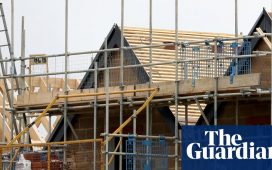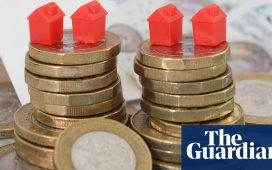The writer is professor of finance at the Shanghai Advanced Institute of Finance and author of ‘China’s Guaranteed Bubble’
A significant change is on the cards for China’s real estate sector in 2023, according to reports from the country’s recent Central Economic Work Conference — the landmark event which sets the economic course for the coming year. The delegates insisted on one hand that “housing is for living not speculation”, but on the other, emphasised the critical importance of real estate to China’s economic growth. This statement sent real estate developers’ shares multiplying, to the delight of global investors.
But even if the worst time for China’s real estate sector is behind us, the country’s housing bubble remains a serious structural problem. Just this week, a local government finance vehicle in Guizhou province was allowed exceptional approval to delay its loan repayment to banks by 20 years.
Until the “three red lines” introduced two years ago to reduce borrowing, Chinese housing developers enjoyed a degree of leverage higher than that of their Japanese counterparts in the 1980s or US peers in 2008, especially if one accounts for presale and informal financing. To make things worse, Chinese homebuyers were offered versions of intergenerational and zero-deposit mortgages in much larger volumes than official statistics suggest.
Chinese first-tier cities such as Beijing and Shanghai, have become some of the most expensive in the world, with widening house-price-to-income ratios which are frustrating youngsters trying to get into the market. The media has even coined a new term, “six wallet”, to describe the way young couples have to tap their own two wallets, and those of all four of their parents, to buy a property.
Nonetheless, Chinese households are still willing to pour their life savings into property, as long as house prices keep rising. Camouflaged under the term “improvement housing”, which is supported by the CEWC, many Chinese homebuyers are expressly chasing potential returns from the investment they have known over the past two decades. This is strikingly similar to the behaviour of investors during the Japanese and US housing booms.
Managing speculators’ expectations during a run of rising prices is an art. If the message is too blunt and hawkish, it runs the risk of scaring the market and piercing the bubble. However, if it is not stern or explicit enough, the market may shrug off warnings and continue its buying spree. This is the Chinese government’s dilemma.
To cool housing speculation, policymakers have in the past 15 years implemented a series of curbs, all of which were eventually dropped. After all, China’s housing sector has become too big to fail. Following a few such curb-relax cycles, even the early sceptics are convinced that housing prices will never fall, and that government support will remain steadfast.
Their rationale is that since the housing sector brings critical fiscal revenues to local government and gross domestic product growth to Beijing, then as long as policymakers are pursuing high-speed growth, they cannot afford to withdraw their support for the housing market.
But that has changed. While the speed of growth remains an important policy goal, it is no longer the only one. Over the past few years, China has started a transition into a more financially sustainable, environmentally friendly, and socially inclusive growth.
The economic slowdown in 2022 presents some real tests for policymakers, not just concerning the real estate sector, but China’s future growth model. Recent policies are targeted at stabilising the housing market. However tempting it might be, returning to the mindset in which property is an engine of investment and growth would just be dangerous.










